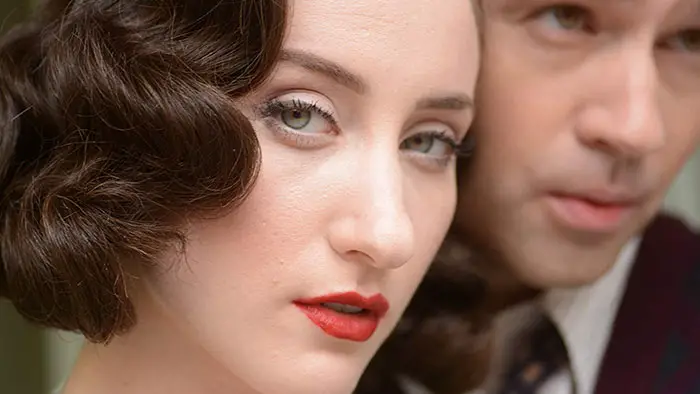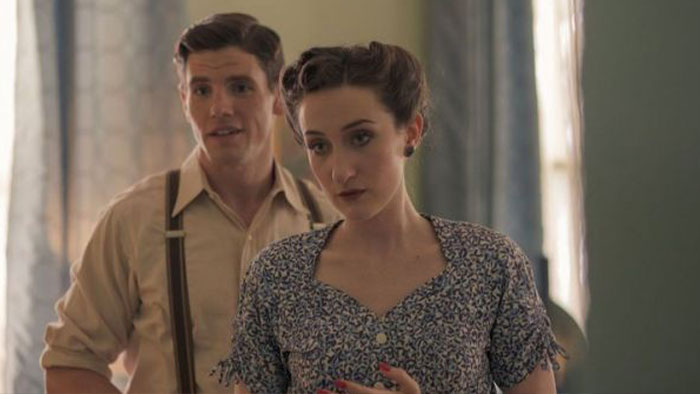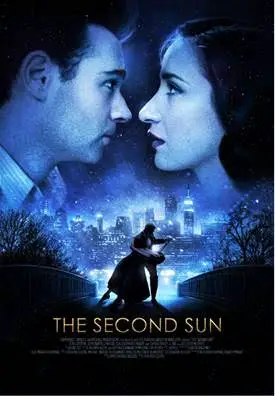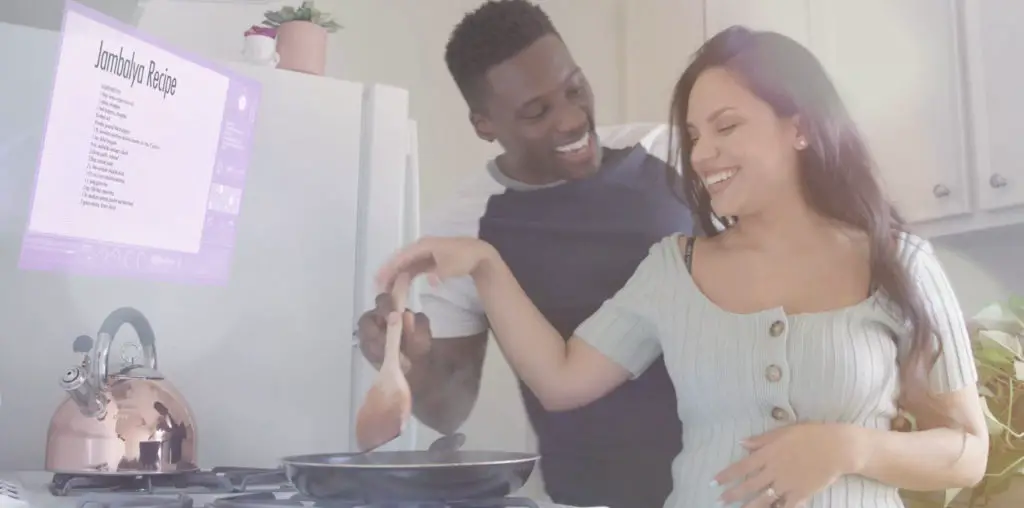
Jennifer Gelfer’s indie drama The Second Sun can’t be faulted for lack of ambition. Set in the wake of WWII, her debut feature goes for broke, boldly attempting to replicate the feel of romanticized 1950’s Hollywood dramas. It surely tries to get the most out of its limited setting/budget. Unfortunately, The Second Sun ends up halfway-there – a rambling, highly theatrical, earnest piece, bolstered by two commendable leads that do what they can with turgid, groan-inducing lines.
A former army medic, Max (John Buffalo Mailer) leads a carefree life, helping his old friend out at a Manhattan bar during evening shifts. He believes that the people he’s lost in the war aren’t in fact lost, “just dancing in the streets.” One night, the grief-stricken dressmaker Joy (Eden Epstein) strolls into the deserted saloon. They strike a conversation.
“Stuck behind a window and an apron,” Joy fled a life of misery, in pursuit of stardom. She’s in awe at how content and jovial Max is, having first-hand witnessed what war can do to people (and perhaps even experienced a horrendous tragedy of her own). His nonchalant demeanor infuriates her: “You talk like everything’s new, like nothing bad has ever happened,” she accuses him.

“They make dinner, chat about their past, dance, kiss and make love passionately – until their dark pasts surface.”
They make dinner, chat about their past, dance, kiss, and make love passionately – until their dark pasts surface. A number tattooed on Max’s arm coincides with a certain other number. His own backstory puts things in perspective for Joy, making her feel ashamed of her feelings – she wants him to unravel, to pierce through that membrane of faux-happiness. It all leads to a hopeful finale. And gosh, this whole sugary concoction is just so damn difficult to criticize, like telling a sincere, puppy-eyed 13-year-old that their short story, well, kinda sucked.
For a feature clocking in at under 80 minutes, The Second Sun moves at a sluggish pace. Its languid tone isn’t helped by long pauses in conversation, frequent dancing interludes (the act of dancing being one of the running themes) and unnecessary flashbacks. Rita Hayworth is constantly referenced – as a source of inspiration for Joy, Max – and this very feature, it seems. James Patrick Nelson’s dialogue comes off hackneyed. “Don’t you get it?” Max asks shrilly. “I’m still alive to meet the woman of my dreams. I don’t know what I’m doing here if not to fall in love with you.” “Cut it out!” he screams later, after an overwrought exchange. “This feels like violence!”

“…her debut feature goes for broke, boldly attempting to replicate the feel of romanticized 1950’s Hollywood dramas.”
The film goes for “old school charm” yet feels dated in its aesthetic approach – a gratingly starry-eyed, romanticized view of the world – as well as its acting, its pacing, and even some of its rhetoric. “You need my shoulder to lean on, or you’re not gonna make it,” Max proclaims. “How do you know that?” Joy sensibly asks. “Experience,” the manly man declares. How times have changed since the 1950s?
Perhaps The Second Sun would have functioned better on stage. There’s a shred of melancholy permeating the otherwise-glossy narrative that may be more palpable when experienced live, without the celluloid barrier. The talented leads would have more room to breathe. In the film, the titular “second sun” stands for second chances. Gelfer may have missed the mark with this one, but she displays enough technical skill and empathy for her characters to deserve another shot.

"…the people he’s lost in the war aren’t in fact lost, 'just dancing in the streets.'"



[…] Jennifer Gelfer’s indie drama The Second Sun can’t be faulted for lack of ambition. Set in the wake of WWII, her debut… Source link […]